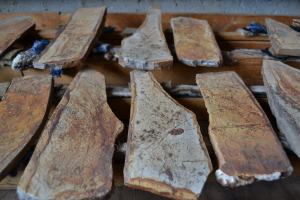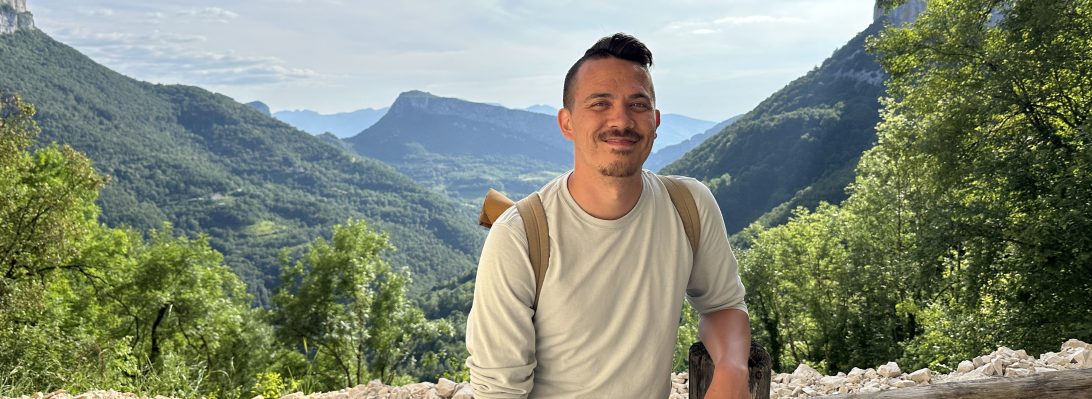This spring, I’ve had the chance to peek into what life without ID looks like in Canada, interview one of Canada’s most interesting authorities on environmental policy, and produce the most music-centred story I’ve ever done for Terra Informa.

First off, the story I made for the many people who asked to hear the recordings I made of artist Páll Guðmundsson while I was in Iceland. This story was a mix of liquid luck and preparation that paid off. If ferry workers hadn’t been striking in south Iceland where we originally wanted to go, our friends at the tourist bureau in Reykjavík would never have recommended we go check out Páll’s rock sculptures in his tiny summer village of Húsafell. Fortunately I had packed my pocket-sized Zoom audio recorder just in case I met someone life changing, whose story I absolutely needed to tell.
Have you ever gone somewhere new and had the feeling that you’ve been there before? Imagine going away on a trip and finding that everything you see reminds you of home: the stores have the same shape and sell the same clothes, the restaurants serve the same sort of food, the people listen to the same kind of music…
What about somewhere embraces its own character and qualities? That’s what I saw in Páll Guðmundsson, an artist whose local and naturally inspired work makes his home feel one-of-a-kind. Listen from about 10:18:

Next, my interview with Scott Vaughan, Canada’s former Environment Commissioner and the new President and CEO of the International Institute for Sustainable Development (IISD). IISD just took a big leap forward for themselves, and for aquatic science in Canada, by successfully negotiating to become the new operator of the Experimental Lakes Area in northern Ontario. It’s one of Canada’s most important (and most famous) scientific research facilities.
There, scientists have a unique ability to conduct experiments on entire lake ecosystems — in some cases, their research lasts over decades. The research there has caused major changes in the way we live in Canada: like how acid rain affects freshwater fish, and how phosphates in our detergents can cause algae blooms.
But in 2013, the federal government said it felt the Experimental Lakes Area’s research was no longer necessary, and to be be shut down. That set off a mad scramble from environmental groups, activists, and researchers around the world to find a way to keep it alive.
I got a chance to meet Scott Vaughan at the Zero 2014 sustainability conference in Edmonton to discuss how the year of upheaval will affect the research at the ELA, and what he learned about the federal government’s attitude towards research during his time as Canada’s Commissioner of Environment and Sustainable Development. We had a frank talk about whether he and the other parliamentary officers who’ve irritated the government ever get together and commiserate, but regrettably I had to cut it out of this Terra Informa story. The rest still makes for a fascinating story, I think. Listen from about 1:28:
Finally, this week I finally got a story out that I’ve had in my head for a long time. Last year, I noticed a flyer up in the Stanley A Milner library in downtown Edmonton, advertising an ID storage service at Boyle Street Community Services. I was intensely curious why anyone would need to have the centre lock their ID away. It led me down a rabbit hole of the frustrations that face seniors, homeless people, the recently-incarcerated, anyone who wasn’t born in Canada, and ultimately, our democracy.
You can check out the story online or on newstands in Vue Weekly.
